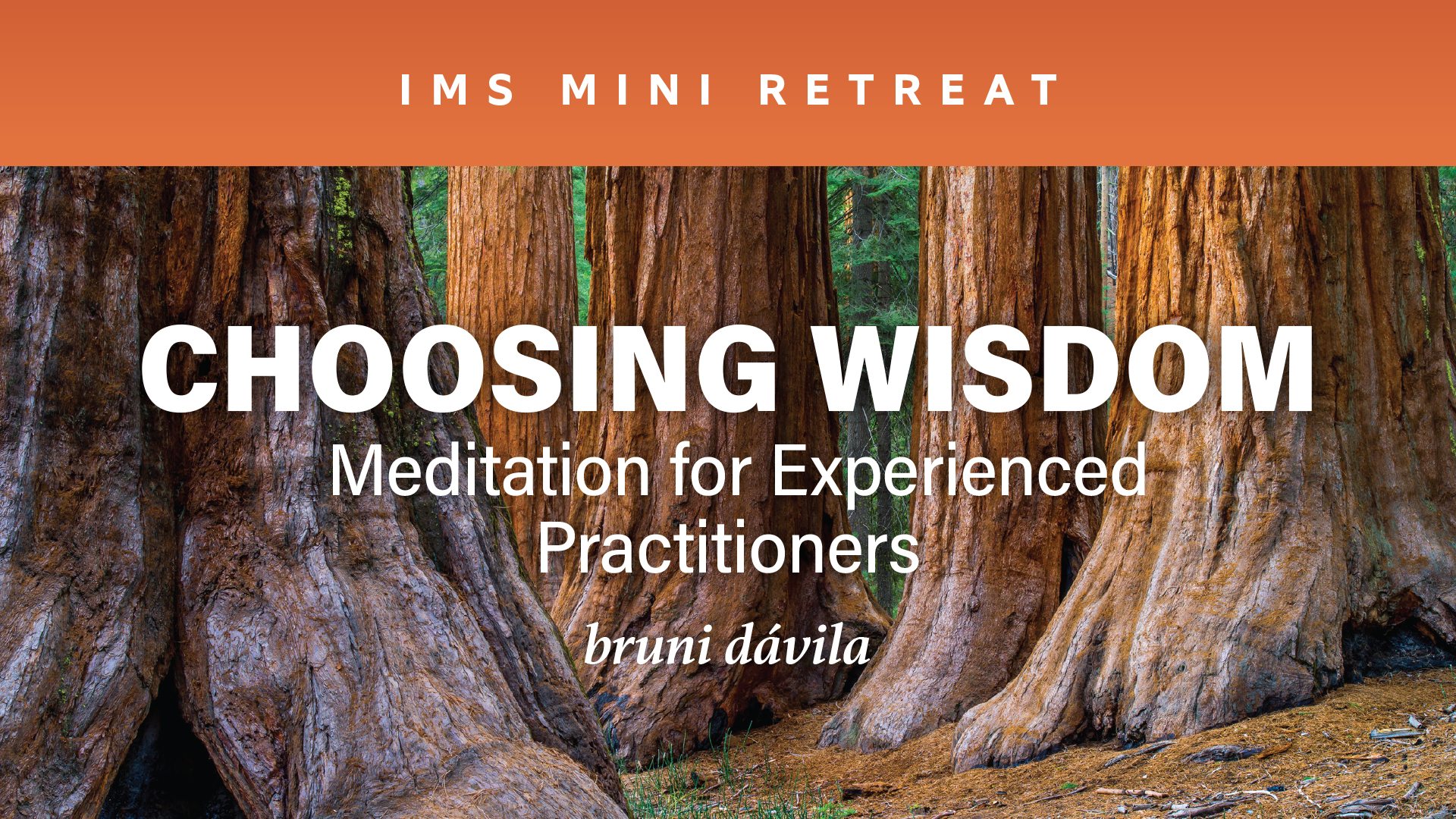Choosing Wisdom: Cultivating the Heart and Mind
Sunday, August 14, 2022
9:00 am – 12:00 pm ET
Register here.
IMS Teacher bruni dávila has practiced Vipassana and Zen since 1995. A student of Andrea Fella and Gil Fronsdal, she practices and teaches at theInsight Meditation Center in Redwood City, CA, and also teaches Dharma in Spanish in the wider Bay Area. She is a grduate of the 2017-2021 IMS Teacher Training Program.
bruni will lead Choosing Wisdom: Cultivating the Heart and Mind, an online mini-retreat for experienced meditators, exploring the themes of choice and wise selection. Here, bruni speaks with IMS Staff Writer Raquel Baetz about the retreat theme and what participants can look forward to.
Why did you decide on Choosing Wisdom: Cultivating the Heart and Mind as the topic for this mini-retreat?
In insight meditation, we hear the word “wisdom” (paññā) being used as “liberating wisdom”—the wisdom that grows out of being aware/mindful, and that reveals to us the true reality of how things are: impermanent, that there is dukkha in life, and not independent self. There is also the wisdom that is cultivated through receiving the teachings and through reflection.
In practicing with the second foundation of mindfulness—feeling tone—and checking the quality of mind (third foundation) in that moment of contact, I have been able to see that this moment also can be one of discernment. There is an opportunity to choose actions of body, speech, and mind that can or cannot create suffering, and that can bring happiness and peace.
Feeling tone is a crucial link in the chain of dependent origination of suffering. Recognizing feeling tone and how it relates to the quality of our minds can help us choose between the wholesome/skillful (kusula) and unwholesome/unskillful (akusula).
When we realize/discern this, we can be wise, take a step back, and see what conditions we can choose to cultivate in the practice that will support an open and strong heart and qualities of mind that support freedom, goodness, and stillness.
How does our practice enable us to recognize moments of choice?
As we practice (both on retreat and in daily life), our understanding of some of the conditions that create freedom or harm become clearer. We get reference points of what is peace and what is not peace, and we learn to choose conditions that supports non-clinging, and a mind free from greed, hatred, and delusion. We don’t need to analyze things, but we see how feeling tone conditions these defilements in the mind if we don’t pay attention. And how they manifest in the body. The body will tell us.
We have an opportunity to go even deeper in the practice by turning the mirror into ourselves and exploring views and intentions that guide actions of body, speech, and mind.
Why is choosing so important?
Choosing is so important because we are either choosing more suffering or cultivating conditions for freedom. We are choosing between what is wholesome/skillful and what is unwholesome/unskillful, and the views and intentions that support them. The Buddha said a wise person chooses what is beneficial for oneself, beneficial for others, and beneficial for all.
I find this practice so empowering. Seeing that I have some agency in what I cultivate in my mind and heart, independent of life’s circumstances. It nourishes unshakable confidence in the practice, and skillfulness in how to practice on retreat and daily life. Wisdom grows and, through wisdom, greed, hate, and delusion will decrease in the mind.
What can participants expect on this half-day retreat?
Participants can expect an unhurried and spacious time for practicing with the satipatthanas of body, mind, and feeling tone in a simple, skillful, and accessible way.
As we establish ourselves in the practice, we will cultivate wisdom and knowledge through listening to teachings on the foundations of feeling tone and mind and how they interrelate with the body. The participants can expect to receive food for reflection in their lives on what is wholesome and unwholesome and how to practice the learnings from the mini-retreat in their daily lives.



